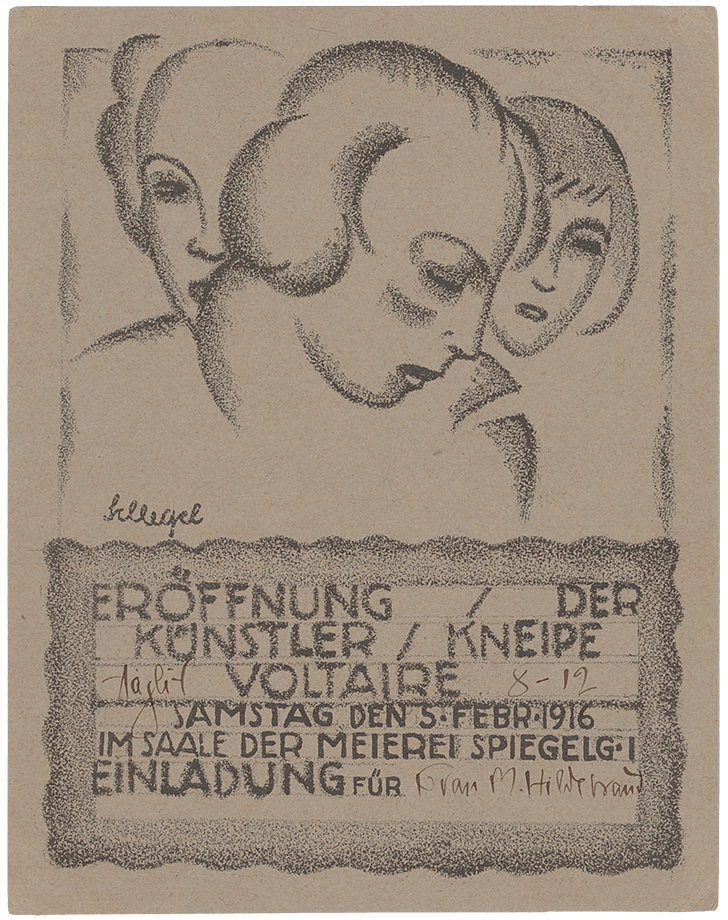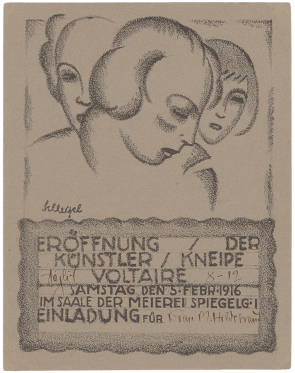Hugo Ball was the speaker of the young artists and literati who enquired with the owner of the Meierei restaurant if they could use the function room adjoining his Dutch Wine Bar as “a rendezvous of artistic entertainment and intellectual exchange.” They saw their stage as a counterweight to all the amusement establishments that were booming all around. The Dadaists knew the place from Zurich’s first literary cabaret, Pantagruel, which had also rented these premises. For the opening night, Ball, a proven man of the stage and the theatre, left nothing to chance, beating the drum for the event with press releases, posters, invitation cards, and personal letters. The expenses incurred were to be covered by a fifty-centime cloakroom fee.
The invitation card, personally addressed by Ball to his sister, who lived in the German province of Rhineland-Palatinate, presumably was never sent; in any case, his favourite sister did not attend the opening. The card design and drawing were by Karl Schlegel, who was also a contributor to the exhibition at the Cabaret Voltaire. The three modern women might have been part of a Dada audience as described by the press: “Women in tight-fitting dresses with short-cut hair and manly features” (Zürcher Morgenzeitung). Schlegel belonged to a small group of local artists who were associated with the Mouvement Dada only briefly and peripherally. The German writer and guest of the Cabaret, Klabund, rhymed, “A German poet sighs in French. / Romanian sounds Siamese. / Art’s flourishing, oh what a bliss. / We once even had here someone Swiss.” Ball had relations to the most heterogeneous groups and hoped “to achieve things for this very reason.” His criticism that the Swiss were too deliberate people for the Cabaret presumably also included a number of artists. In any case, Schlegel’s career took a very special turn, as did that of Swiss composer and pianist Hans Heusser, another associate of the Dada circle: Heusser went down in history as a prizewinning composer of military marches, and Schlegel as an important corporate designer of the Migros supermarket chain.
Edition: Unknown number of copies. Sturdy grey paper. Front with handwritten notes in ink by Hugo Ball. Back dated in ink: “8. II. 1916” Provenance: Donation from the heirs of Peter Schifferli, Zurich, 1984.
→ Marcel Słodki, poster for the opening of the Künstlerkneipe Voltaire, Gr.Inv. 1992/39
→ Cabaret Voltaire, DADA III:37
→ Emmy Hennings, letter to Reinhold Rudolf Junghanns, DADA II:27

